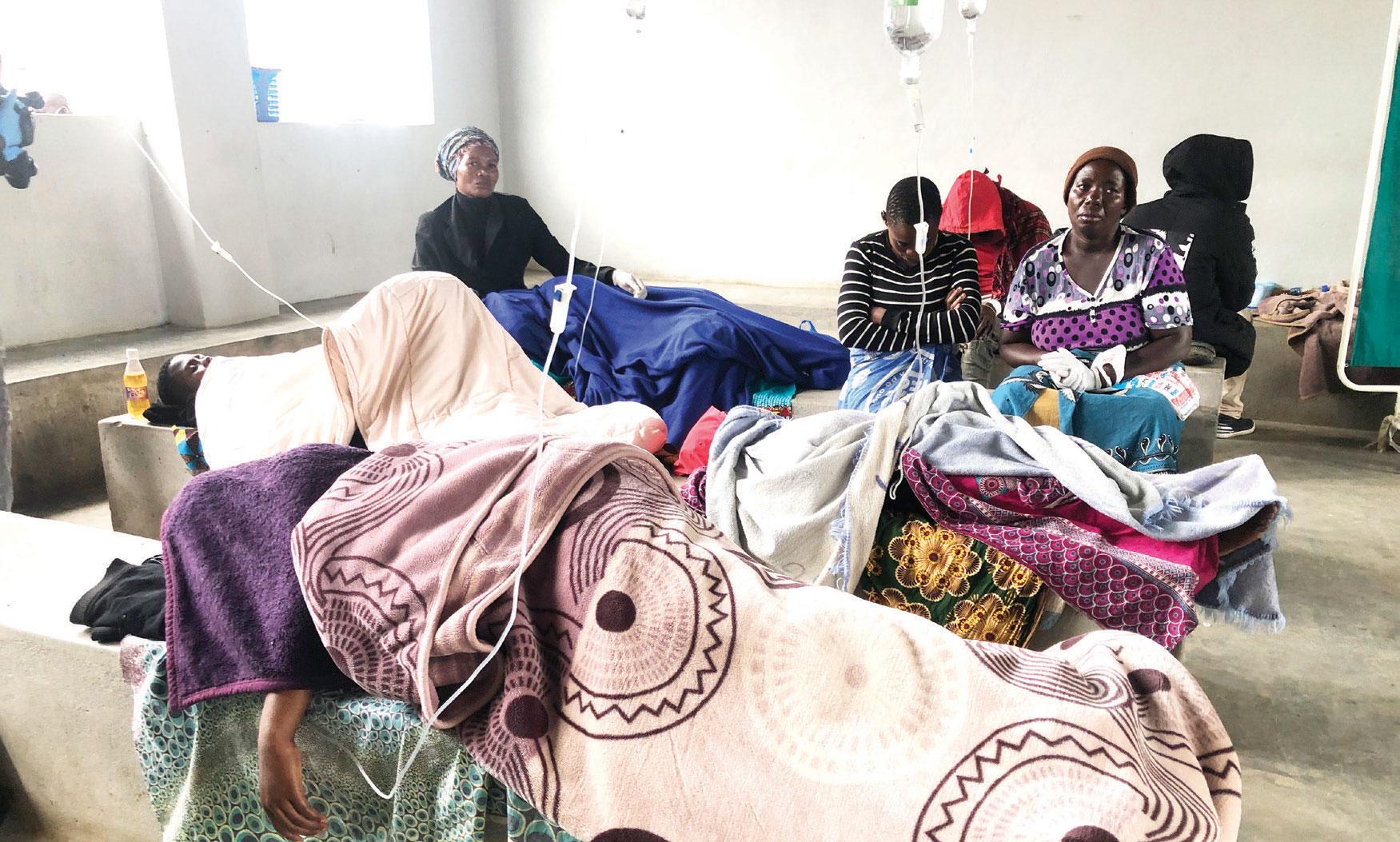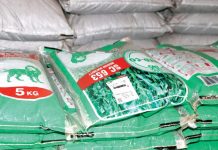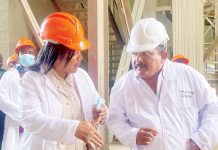Africa-Press – Malawi. Even after development partners stepped in with medical shipment, having noticed that the cholera situation in the country was getting out of hand, with 916 deaths and 28,132 confirmed cases, the disease is still raging. Now government has sounded a voice of despair following the running out of cholera vaccine.
Just like a hunter who was eyeing a bird that eventually flew away, such is the sad tale of Malawi’s cholera situation. The country has run out cholera vaccine, according to health authorities, after finishing the last of the 40,000 doses that remained. The development comes as the cholera figures continue to peak.
Since March last year when the first case under the current wave was recorded in Machinga District, the country has found itself in a frantic battle to try and contain the disease, unsuccessfully so as it became fully blown, affecting all the 28 districts.
Vaccine donations
In May 2022, the World Health Organisation (WHO) supported the Ministry of Health in securing 3.9 million doses of the Oral Cholera Vaccines (OCV) from the global stockpile funded by GAVI-the Vaccine Alliance and the Global Taskforce on Cholera Control.
In November 2022, the country again received, through WHO and Unicef, a consignment of 2.9 million doses of oral cholera vaccine to support the fight.
‘We’re left with no more options…’
Yesterday, Ministry of Health spokesperson Adrian Chikumbe dropped the bombshell in Lilongwe when he announced that the vaccine is depleted now. “I can confirm that we have depleted all the cholera vaccine doses that we had.
“We are left with no option but to ask Malawians to adhere to strict preventive measures. We are now in talks with WHO for another consignment,” Chikumbe said. He admitted that there is no immediate indication that the vaccines would come in anytime soon.
Caught by surprise
Last year, as images circulated of diagnosed patients hooked to drips while lying on the floor at clinics and makeshift cholera centres, hardly could it have been expected that the situation would worsen.
In March, Chikumbe admitted that the outbreak had caught the government by surprise and had caused pressure on the human resource. “We didn’t foresee this coming because cholera was only expected in rainy season. We were dealing with Covid-19 when the outbreak erupted, so it was one emergency after another,” Chikumbe said.
He said then that the main challenge in containing cholera was poor compliance to preventive measures which health experts are providing. “We do not need new measures. If all of us had to comply with those measures, we would have been able to contain the disease,” he said. He cited use of unsafe water and eating of unhygienic food as the main cause of the continued spread.
Begging for more supplies
But largely, government has been relying on donations. On January 6, co-chairpersons of the Presidential Taskforce on Covid-19 and Cholera Khumbize Kandodo Chiponda and Wilfred Chalamira Nkhoma issued a statement in which they appealed for donations of medical supplies such as ringers lactate, giving sets, cholera beds, tents, examination and heavy duty gloves, gumboots and solar lamps.
“The support can be in form of donations that are expected to cover various gaps currently being experienced in the prevention, control and management of the cases across the country,” the statement read in part.
While the running out of vaccine is a cause for concern, others such as health rights activist Maziko Matemba see it as something to be optimistic about.
Matemba said it is encouraging that all cholera vaccine has been utilised — compared to low uptake of Covid-19 vaccines. “This shows that people are now realising the importance of vaccines in saving lives, we hope this will continue.
“On another important note, government needs to make sure that more cholera vaccine is procured but people need to be reminded to follow all the hygiene practices in preventing the disease,” Matemba said.
‘Invest in research’
Save Kumwenda, an environmental health scientist at the Malawi University of Business and Applied Sciences, said there is also need to invest in research in order for the interventions to be evidence based.
“This will ensure that we always invest in interventions which yield maximum benefits. We need to understand the main drivers of the epidemic and also identify reservoirs of the bacteria causing cholera. The knowledge of the reservoirs will help easily prevent the re-occurrence of the outbreak,” he said.
Kumwenda added that behaviour change is also key. “People need to know how to prevent themselves from contracting cholera and other faecal-oral diseases. Awareness is done but most of the times it does not translate to behaviour change,” he said. As of January 19, 2023, Malawi had 27,500 Cholera cases with 899 deaths.
For More News And Analysis About Malawi Follow Africa-Press






